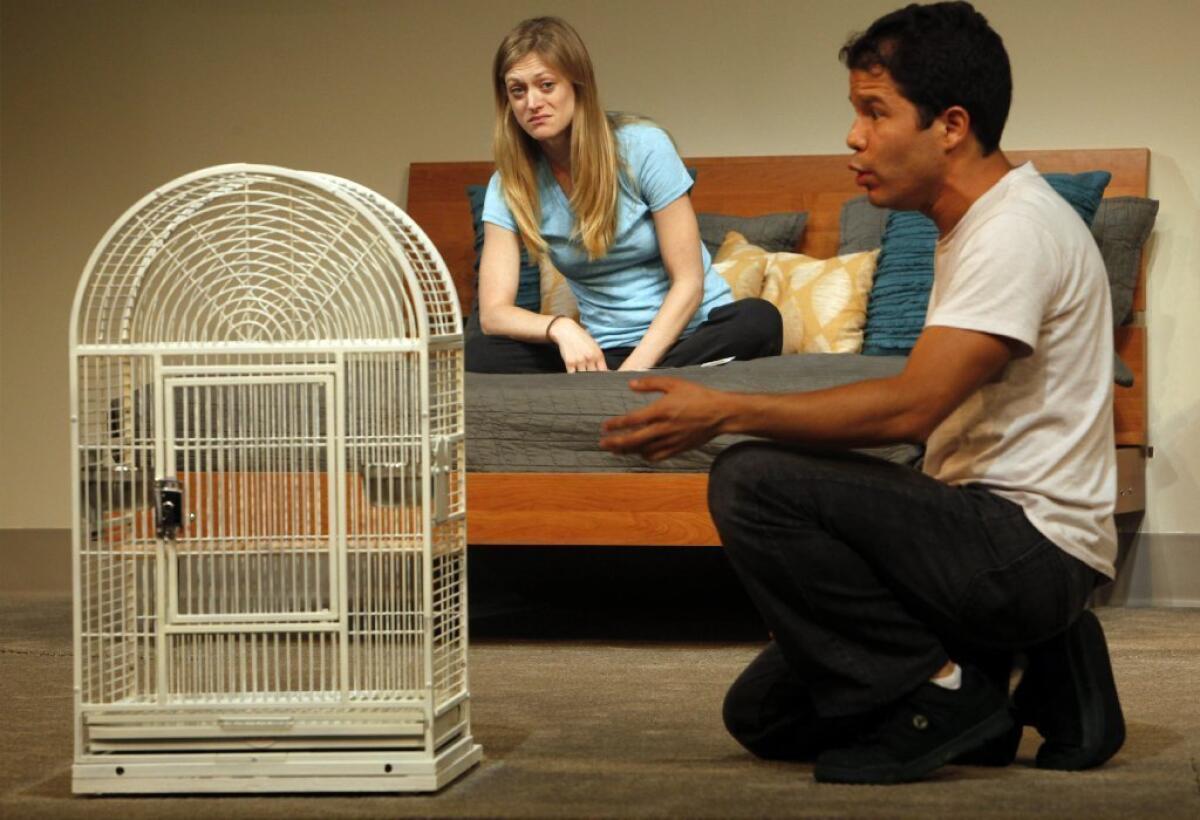Postscript: A few more thoughts about ‘A Parallelogram’

- Share via
In “Postscript,” a critic returns to works already reviewed to respond to readers, touch on points not covered, share second thoughts and extend the critical conversation.
Several of my colleagues in the newsroom seem to have a higher regard than I did for Bruce Norris’ “A Parallelogram,” now at Mark Taper Forum in a sensationally acted production directed by Anna D. Shapiro.
When I asked one editor what he liked so much about the play, he talked about how bracing he found Norris’ “scabrous” wit.
PHOTOS: Best in theater for 2012
Norris’ ruthless unsentimentality--his refusal to console or placate middle-class sensibilities--is certainly a refreshing change in an American theater more comfortable with confirming and extolling audiences’ values than challenging them. “Clybourne Park,” Norris’ Pulitzer Prize-winning retort to “A Raisin in the Sun,” pulled no punches about racial progress (or the lack thereof) in America.
I began to think that “A Parallelogram,” more ruminatively existential than pointedly political, is the anti-“Our Town,” the Thornton Wilder classic that insists that if we realized the brevity of our lives we would appreciate them oh-so-much more.
Norris will have none of that. His play, which revolves around a magical remote control that can rewind time--offers a demonstration that knowledge of our fate has little effect on behavior.
PHOTOS: LA Opera through the years
We are who we are, “A Parallelogram” suggests--in a manner shockingly unflattering to our vanity. Norris’ view of human nature is tinged with a rumbling late Freudian pessimism. Character is darkly determinative. The most we can hope for is superficial improvements that make us feel less unworthy but in actuality leave things pretty much the same. The world’s pain remains undiminished.
I’m not resistant to such a bleak worldview (two of my favorite dramatists, Anton Chekhov and Samuel Beckett, couldn’t exactly be called chipper), though I’d like to see it materialized more convincingly onstage. To me, “A Parallelogram” is a demonstration of Norris’ moral philosophy, a kind of geometric proof of what he already knows to be true. There’s little room for his characters to make their own discoveries. More confining than human nature is Norris’ straitjacket cynicism.
That said, “A Parallelogram” grapples unabashedly with big ideas, and there’s value in that, especially at a time when the theater has grown so mindlessly commercial, and right-thinking is too often confused with sharp thinking.
And yes, there’s that scabrous wit to keep the more steely theatergoers among us entertained.
ALSO:
Review: ‘A Parallelogram,” an existential riddle
‘Sleepless in Seattle’ musical looking to book flight to London
Pasadena Playhouse: Mike Stoller and wife gave crucial $1 million
MORE
PHOTOS: Hollywood stars on stage
CHEAT SHEET: Spring Arts Preview
PHOTOS: Arts and culture in pictures
More to Read
The biggest entertainment stories
Get our big stories about Hollywood, film, television, music, arts, culture and more right in your inbox as soon as they publish.
You may occasionally receive promotional content from the Los Angeles Times.











